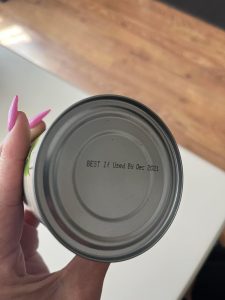
Understanding Food Expiration Dates: What You Really Need to Know
Have you ever wondered if it’s safe to eat food that’s past its expiration date, like a container of milk or a package of chicken? Many of us feel uneasy when we see those dates approaching or even passing, but what do they really mean? According to the U.S. Department of Agriculture (USDA), expiration dates generally serve as guidelines for food quality rather than strict indicators of food safety. This article will explain how to interpret these dates and make informed decisions that can help you avoid unnecessary food waste while staying safe.
Decoding Food Labels: “Best By,” “Use By,” and “Sell By”
Food packaging can sometimes feel confusing. You might see terms like “Best if Used By,” “Use By,” and “Sell By,” which can lead to misunderstandings. In many cases, people mistakenly believe these dates are about food safety, leading to perfectly good food being tossed out. Here’s a breakdown of what these terms actually mean:
- Best if Used By: This date suggests when the food will be at its peak in terms of flavor and quality. It does not indicate when the food becomes unsafe to eat.
- Use By: This refers to the last date the manufacturer believes the food will be at its highest quality. While the product might still be safe to eat after this date, the quality may not be as good.
- Sell By: This is mainly for stores, telling them how long they should display the product on shelves. It’s not related to food safety, but rather to inventory control.
The Impact of Misinterpreting Expiration Dates
Misunderstanding food expiration dates is a major reason behind food waste. In the United States, an estimated 30% of all food is thrown away each year. This waste doesn’t just affect our wallets; it also contributes to environmental problems, such as increased greenhouse gas emissions from landfills. By better understanding expiration dates, we can reduce food waste and make more environmentally conscious choices.
How Long Can Food Last Beyond Expiration Dates?
It may surprise you to learn that many foods can last beyond their labeled dates, depending on how they are stored. Here are some examples:
- Eggs: Eggs are often fine to eat three to five weeks after purchase. You can check their freshness by placing them in a bowl of water—if they sink, they’re still good.
- Meat and Poultry: Refrigerated meat and chicken can remain safe for up to two days beyond the “Sell By” date. If frozen, meat can last much longer, often months or even years, depending on storage conditions.
- Milk: As long as it smells and looks normal, milk can often be used for up to one week after the “Best if Used By” date.
- Dry Goods: Items like rice, pasta, and flour can last for months or even years if stored properly. These foods don’t spoil easily and can be kept in airtight containers.
- Canned Goods: Canned foods are incredibly durable. As long as the can isn’t damaged or bulging, the contents will typically remain safe to eat for years.
Please Head On keep on Reading (>)
